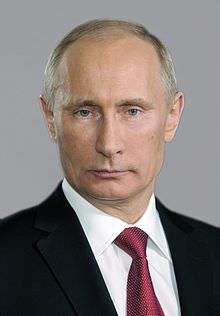Vladimir Putin and Neil deGrasse Tyson Agree on Something: Everybody Panic!

Today is the 52nd anniversary of the first human spaceflight. The lucky zero-gravity Russki, Yuri Gagarin, is honored every year with Yuri's Night festivities around the globe. (These generally involve a lot of nerds drinking novelty cocktails called things like Vostok Fuel or the Keppler 22b.)
Russian strongman Vladimir Putin is celebrating Cosmonautics Day—as it is known in Russia—in style this year, with an announcement of $52 billion in new space spending. (No word on what he will be drinking, but, you know, vodka probably.)
Focusing on the completion of the Vostochny cosmodrome, Putin highlighted the fact that the additional funds will mean that Russia will no longer do manned launches from the Baikonur cosmodrome in Kazakhstan, from which Gagarin made his historic flight.
He touted the economic benefits of the space spending to the area surrounding the cosmodrome in the far eastern part of the country:
Putin announced that the town being built around the new cosmodrome to house its engineers and families would be called Tsiolkovsky, in honour of the Russian scientist Konstantin Tsiolkovsky who pioneered rocket design in the early Soviet era.

There are plenty of folks who want to see the U.S government follow suit, upping spending on space, including superawesome astrophysicist guy (and inventor of the Keppler 22b cocktail) Neil deGrasse Tyson:
The problem is that many people operate on the assumption that NASA should go to Congress every year with hat in hand and justify it every year. Well, I see it as the greatest economic driver that there ever was. Economic drivers don't need justification.
The president's 2014 budget allocated $17.7 billion for NASA, not a big change from the baseline. Which means the debate about the potential stimulative effects of space spending will rage on in the U.S.
But would another space race actually be a good thing for the economies of Russia and the U.S.? Instead of two rival powers spending billions on duplicative launch facilities and secret programs, imagine if they could just pay for (at least some of) those services from private companies and get the same results for a fraction of the price. That leaves more money for other projects (including, perhaps, deep space exploration) while creating real robust private industries.
Oh look! We don't have to imagine that! We are already contracting out some space services and many more private space companies will start selling passenger tickets and space delivery very soon. Let's skip the space race. Maybe Tyson and Putin can just start taking space vacations together instead.


Show Comments (51)